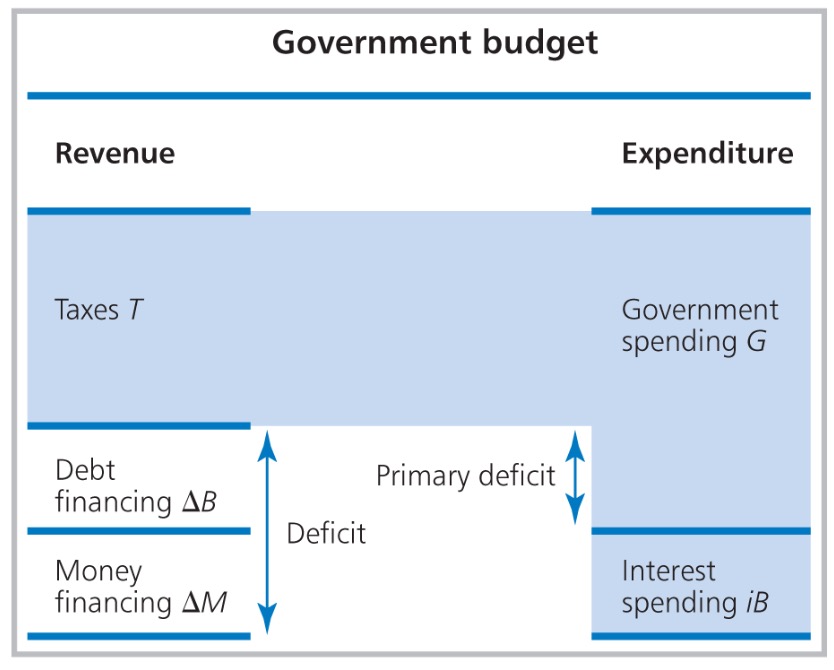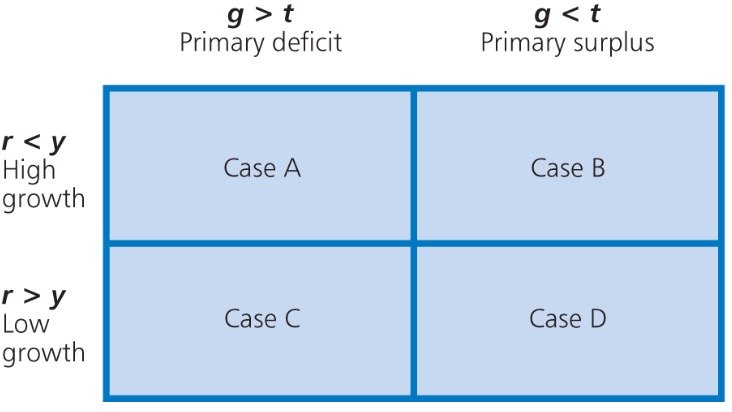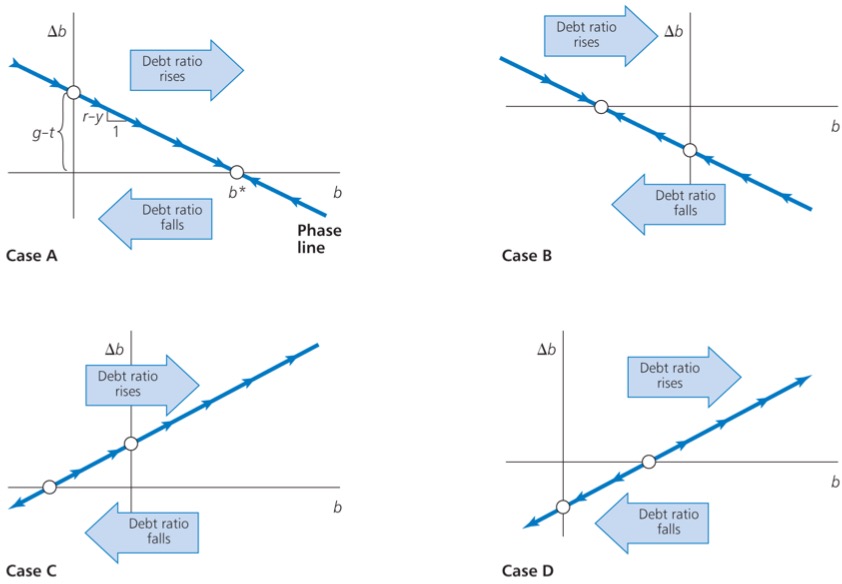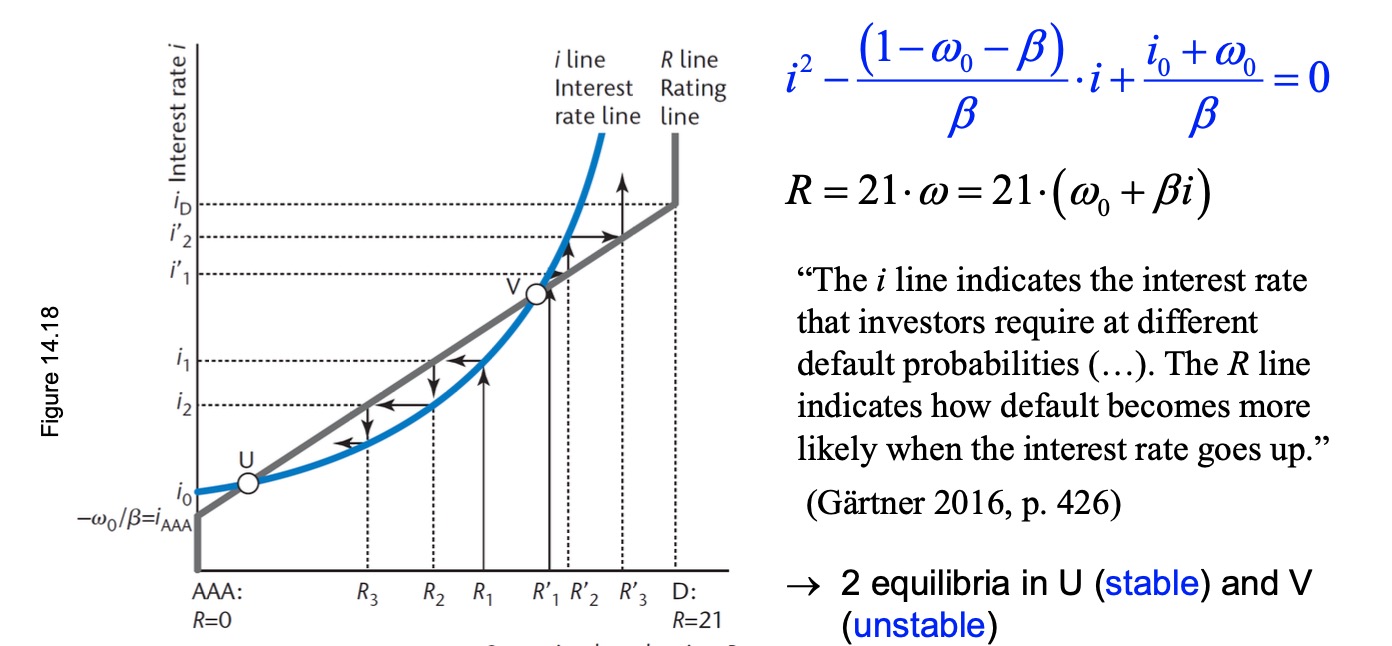07.06.2023 Budget Deficits and Debt#
Government Budget#

Budget Deficit: \(\Delta B = G + iB - T\)
Primary Deficit: \(G-T\)
Budget Constraint: \(T + \Delta B = G+iB\)
Financing Options
Bonds Issuing: \(\Delta B \uparrow\)
Money Printing: \(\Delta M \uparrow\)
sell assets / privatise (bah)
Maastricht Treaty EU
Debt to GDP Ratio: \(b = \frac{ B }{Y} \le 60\)
all government entities (local etc.)
Deficit Ratio: \(\frac{ \Delta B }{Y} \le 3\%\)
Equilibrium Debt Ratio: \(b^* = \frac{ g-t }{y-r}\)
Scenarios:

Debtor: A + D
Creditor: B + C
=> Debt is also dependent on Economic Growth, nut just deficits
Phase Line#
Movement of Debt over Time,
depends on \(\Delta b\) (Neuverschuldung)
and level of \(b\) (Grad der Verschuldung)

Cases:
A = Debtor (\(\Delta b>0 \ \&\ b > 0\))
B = Creditor (\(\Delta b<0 \ \&\ b < 0\))
C = short run debtor
D = short run creditor
European Central Bank#
can do Seigniorage (Münzgewinn) = Profit from creating money
Profits are shared by the national banks
and given to finance ministers
even Non-Euro members have to contribute
Interest Rate and Debt#
Interest Rate i on Debt fluctuates wildly
dependent on Default Probability \(\omega\)
and riskless interest rate \(i_0\)
judged by credit rating agencies with rating R (AAA -> D)

European Debt Crisis#
Policy Options:
Austerity (Fiscal Compact 2013)
rules similiar to Maastricht
aggavates recession
makes investments difficult
=> bad idea! doesnt work
Bailout (European Stability Mechanism)
Help from other european insitutions
debt refinancing, but cuts to programmes
also newer in NextGenEU (Covid)
Quantitative Easing (PSPP)
ECB buys Bonds with fresh money
lowers interest rate for deficits